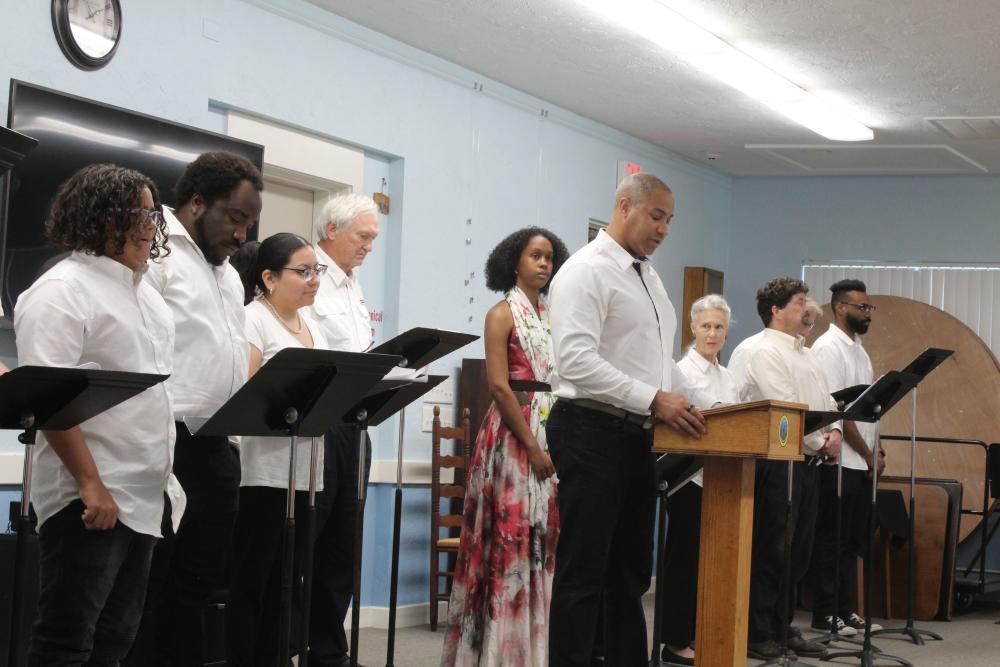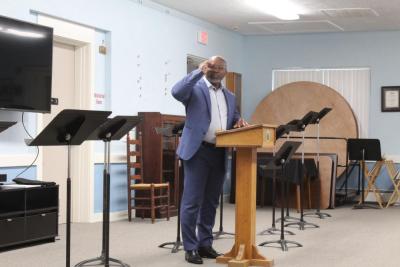Audience members encouraged to ‘look in the mirror’ during reading of Fredrick Douglass’ address
MARION — The issues addressed in Fredrick Douglass’ 1852 address “What to the Slave is the Fourth of July” are still relevant today, according to UMass Dartmouth’s Moise St. Louis.
Community members from across the Tri-Town came to the Benjamin D. Cushing Community Center to listen to the Marion Art Center and Tri-Town Against Racism’s staging of the address, featuring St. Louis and 15 readers, on Saturday, July 1.
The address, first given in Rochester, NY on July 5, 1852, highlights the hypocrisy of America’s ideal of freedom in a time when slavery was still legal.
Now, with the Supreme Court’s recent decision to end affirmative action, St. Louis believes that the sentiments of Douglass’ address are prevalent today.
“The questions raised by Douglas are still relevant questions today,” said St. Louis. “The challenges that the nation is facing today are really part of the challenges facing the nation when Douglass first spoke.”
During the introduction, St. Louis recounted pieces of the founding of America and their connection to slavery, from slave-owning founders to the three-fifths compromise, and how they have created barriers for Black Americans.
Orators read an abridged version of “What to the Slave is the Fourth of July,” alternating lines between readers.
Much of Douglass’ address discusses the irony of celebrating freedom from the British when Black Americans were not free.
“I say it with a sad sense of the disparity between us, I am not included within the pale of this glorious anniversary,” read Quinn Chisolm from the address. “Your high independence only reveals the immeasurable distance between us.”
The questions raised in Douglass’ address are intended to prompt self-reflection, St. Louis said, and he encouraged the audience to “look in the mirror.”
“Douglass held a mirror, and now more than ever it is necessary for us to look deeply into that mirror,” he said. “To see the values, creeds and morality we profess and reflect in our homes.”
















